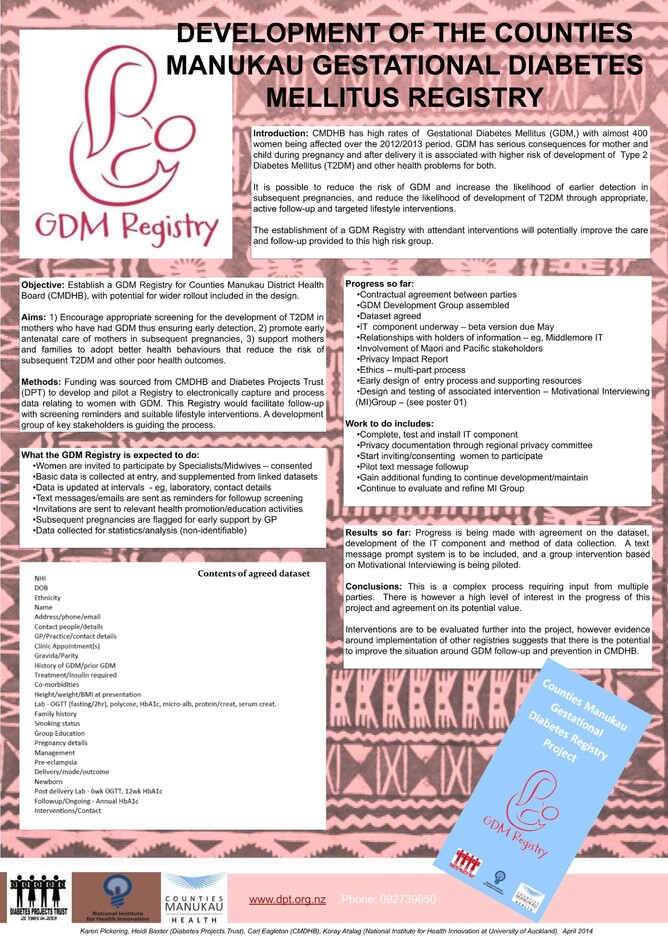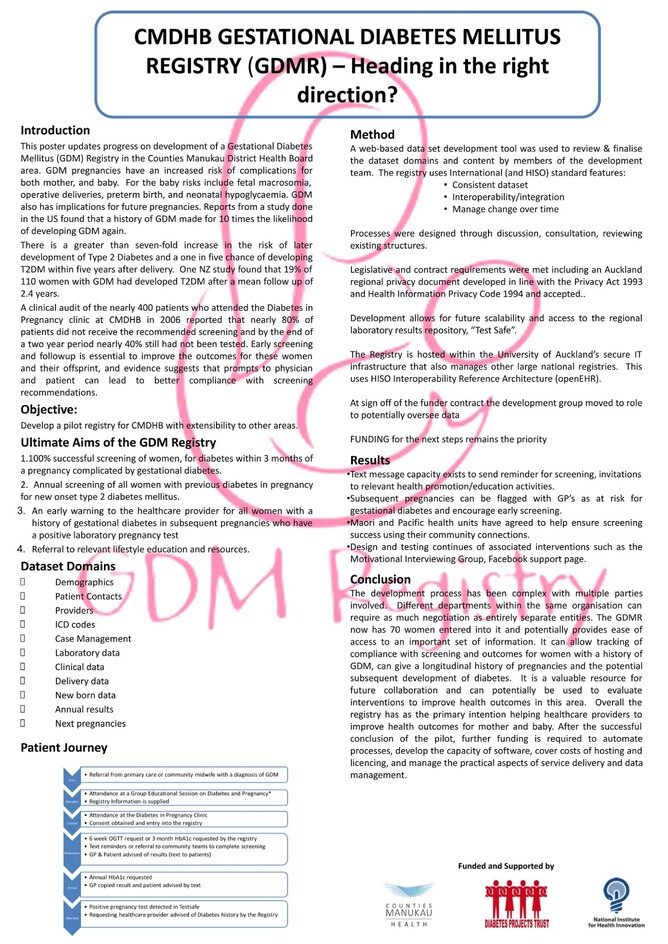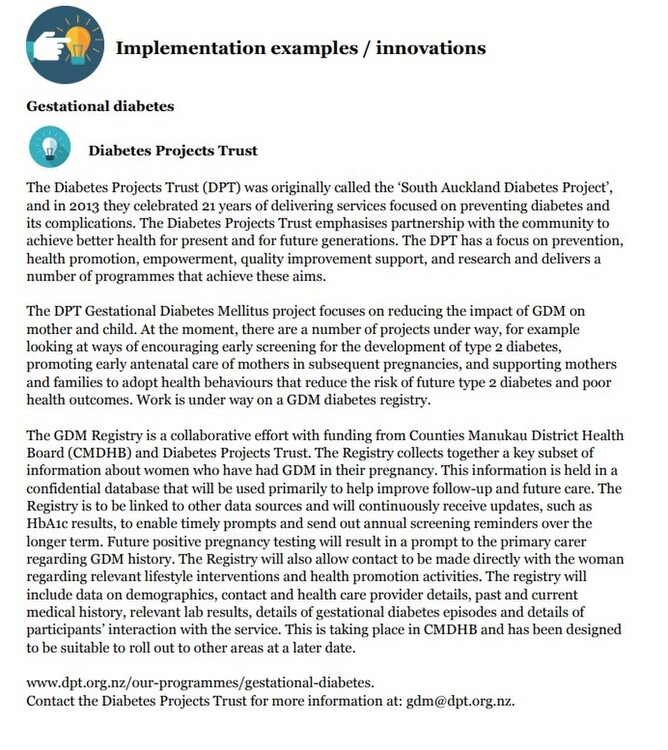Diabetes Projects Trust was delighted to be part of an innovative pilot project with Counties Manukau District Health Board and multiple stakeholders with an interest in Gestational Diabetes (GDM), along with Koray Atalag of The National Institute for Health Innovation at the University of Auckland.
The aim was to set up a GDM registry with the capacity to support screening women for type 2 diabetes after pregnancy with GDM, set up prompts/reminders for annual screening, and include information for health providers about history of GDM for any subsequent pregnancy. Hoped for outcomes included improved health outcomes, reduced disparities, data for research, collaboration/education.
Considerations in the project were the range of stakeholders, privacy/confidentiality/ security, dataset, practicality/ease of use, change management, multiple IT systems inside the hospital and outside, the IT/design of the database itself (held at Auckland University), as well as the possibility of sustainability/extensibility/future options.
The main requirements for the contract were achieved with Diabetes Projects Trust co-ordinating the project and the test database was receiving input with a number of entries. A number of presentations and posters have been done subsequently, examples below presented in subsequent years at the NZSSD conference. A presentation was also done at the Australasian Long-Terms Conditions Conference by Koray Atalag.
The project was described in Standard 20 the 2014 Quality Standards for Diabetes Care (p230) as an innovation.
The Diabetes Projects Trust has ceased active involvement with the Registry however continues to run a practical pilot project with Health Psychologist Heidi Baxter to provide education and support for women with GDM. This will be reported elsewhere. We also have the results of our GDM research into women's knowledge here.




